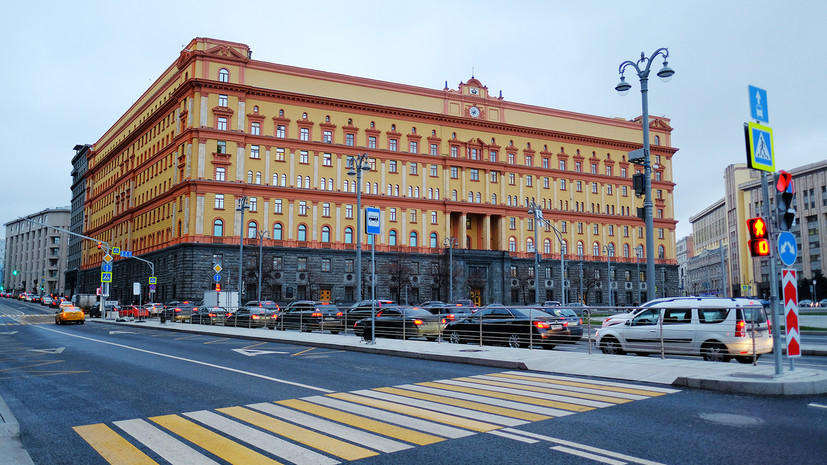The Federal Security Service called the "investigation" of Alexei Navalny about the alleged circumstances of his "poisoning" as a provocation, worked out with the support of foreign special services.
This was reported by the FSB Public Relations Center.
"The so-called" investigation "posted by A. Navalny on the alleged actions taken against him is a planned provocation aimed at discrediting the FSB of Russia and employees of the federal security service, the implementation of which would not have been possible without the organizational and technical support of foreign special services ", - RIA Novosti leads the message of the department.
They also called the video of Navalny's "telephone conversation" with an allegedly one of the intelligence officers a fake.
"The use of the method of substituting a subscriber number is a well-known technique of foreign special services, previously tested more than once in anti-Russian actions, which makes it possible to exclude the possibility of identifying real participants in the conversation," the FSB noted.
The department organized an inspection, according to the results of which a procedural assessment will be given.
Previously, CNN, Bellingcat, The Insider and Der Spiegel submitted materials claiming that FSB officers were allegedly involved in the incident with the "poisoning" of Alexei Navalny.
On December 21, the blogger himself said that he managed to get through to "military chemist Konstantin Kudryavtsev", introducing himself as Assistant Secretary of the Security Council and ex-director of the FSB Nikolai Patrushev.
On December 17, during a large press conference, Russian President Vladimir Putin called the dissemination of allegations of the FSB's "involvement" in the "poisoning" of Navalny "one of the forms of information confrontation."
“This is legalization, this is not some kind of investigation, this is the legalization of materials from the American special services,” the president said.
Putin noted that the blogger enjoys the support of the American intelligence services, adding that "this does not mean that he should be hounded."
The Russian leader recalled that "he gave the command to release him for treatment in Germany" as soon as the blogger's wife approached him.
The head of state once again stressed that Russia is ready to investigate the incident and drew attention to Germany's refusal to provide any evidence of the use of the Novichok poisonous substance against the blogger.
“Can you explain to me why, despite repeated requests from the Prosecutor General's Office of the Russian Federation, we are still not given an official opinion?
The German authorities transferred all the material to the Organization for the Prohibition of Chemical Weapons, they also do not give us anything, referring to the fact that Germany forbade them to give any information.
And Germany says: take all the information there, ”Putin said.
The absence of a response from the Organization for the Prohibition of Chemical Weapons to Moscow's request for technical assistance on the incident with Navalny, sent back on October 1, was also announced in the Russian Ministry of Foreign Affairs.
The department explained that the reason for the refusal was the lack of consent of the German authorities to "full-format interaction of experts of this structure with Russian specialized specialists."
“The organization was again“ held hostage ”by those who persistently seek to use it in their geopolitical interests.
As a result, we have less and less confidence in the OPCW, ”the Foreign Ministry stressed.
On December 16, Foreign Minister Sergei Lavrov called the attempts of the West to blame Russia for the poisoning of Alexei Navalny as flawed, and also noted that Western countries do not want to comply with international legal norms when it comes to establishing facts.
“The logic is this: here, they say, we announced, for example, new facts about the poisoning of Navalny, which were discovered by the German special services, and Moscow has been silent for two days.
If he is silent, then he is guilty.
The flaw in this approach, in my opinion, is obvious to any sane person, "the minister stated.
In October, the foreign ministers of the European Union countries agreed on the introduction of sanctions against Russia over the situation with Navalny.
The Russian side has repeatedly expressed its readiness to conduct a thorough investigation and asked Germany for evidence of the blogger's poisoning, but received no response.

